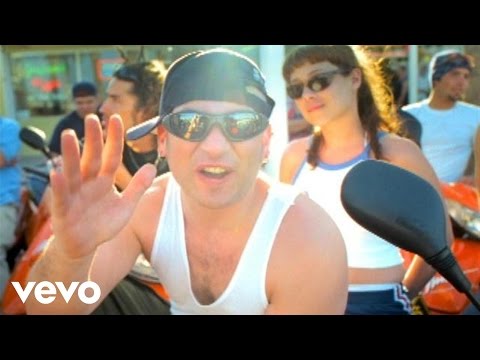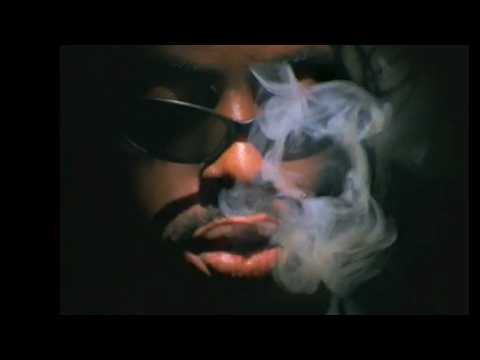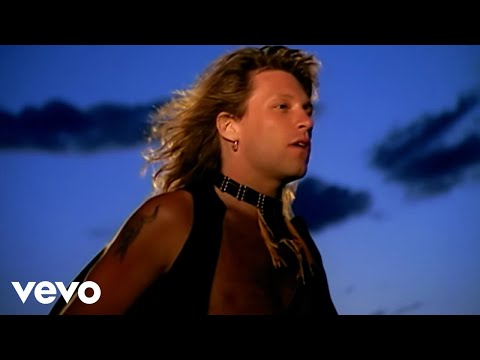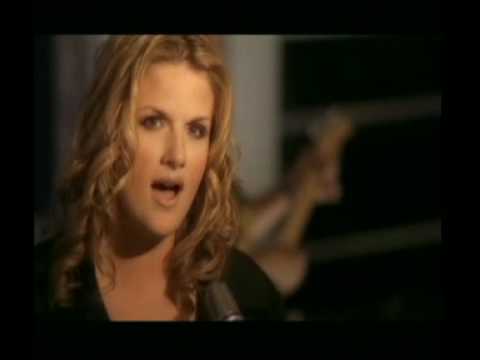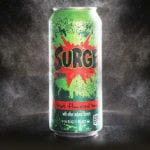Top 10 Weird Music-Related Facts
10 Len’s “Steal My Sunshine” from Go (1999)
Go was released to positive reviews (91% Rotten Tomatoes), but may have suffered from its similarities to Quentin Tarantino’s Pulp Fiction (1994). By the time Go arrived, audiences had already been served a number of Pulp Fiction knock-offs, many of which should never have been made (i.e. The Immortals,, Suicide Kings and 8 Heads in a Duffle Bag). In Roger Ebert’s review, he wrote: “And when two of his [Director Doug Liman] characters sit in a diner and have a conversation about the comic strip “Family Circus,” we think of Uma Thurman and John Travolta sharing pop lore over their milkshakes in ‘P.F.’ We’re also reminded of ‘Pulp’ in scenes involving a laconic drug dealer, a crisis involving body disposal, an unintended drug overdose, in the way its story lines branch off and then join up again, and even in an unusual character name, Zack.” Weary of another disappointment, audiences stayed away and Go made just $16.9 million domestically, almost exactly the average box office draw for 1999. Marc Costanzo, one half of the Canadian brother/sister duo Len, began to work on “Steal My Sunshine” at an electronic music festival years before. “I just got caught up in the night. The song is about how I felt, and then it was exaggerated by the fact that I’m sitting in the middle of a field looking at the stars, about 1000 feet away from the stage, watching everybody dancing at 3 a.m. And I wrote part of it on my leg and a lot of it on a napkin.” The next day Marc was listening to Andrea True Connections’ 1976 hit “More, More, More,” and decided to sample and loop it. Gregg Diamond, writer of “More, More, More,” was later given a songwriting credit for “Steal My Sunshine.” Unimpressed with the song, Marc let the master recordings languished for a year and half under his bed. When he and sister Sharon Costanzo decided to include it on their 1999 album You Can’t Stop the Bum Rush, the song was picked up for the Go soundtrack, which was in turn picked up by radio stations four months before Can’t Stop the Bum Rush was released. And the radio stations played the heck out of it, making it a surprise sleeper hit. It reached the top 10 of the US Hot 100 and is still ranked near the top of one-hit-wonder lists.
9 Gin Blossom’s “Till I Hear It From You” from Empire Records (1995)
Empire Records was, by any definition, a theatrical flop. It was hated by critics (31% rotten tomatoes) and made a whopping $273,000 (yes, that’s thousands, not millions) domestically. That was in a year (1995) when the average domestic box office sales for a movie was $17.8 million and the biggest grossing movie was the cringe-worthy Batman Forever. Years after its release, the movie did see a come-back as a minor cult classic. Watch this video on YouTube Variety magazine called the film “a soundtrack in search of a movie” and it did, indeed, have a decent selection with standout tracks like Edwyn Collins’ haunting “A Girl Like You” and Gin Blossoms’ “Till I Hear It From You.” The latter, written by Gin Blossoms guitarist Jesse Valenzuela, lead singer Robin Wilson and songwriter Marshall Crenshaw, was also on the band’s Congratulations I’m Sorry album. The song went on to rank 15th in Billboard’s Top 100 for 1996. When Billboard magazine reviewed the single, they declared it was “the closest thing to a perfect pop song to hit radio in recent memory,” Valenzuela remembered the first time he heard the song at the grocery store, he wanted to grab someone and say “Hey, that’s my song!” Instead he opted for anonymity.
8 Goo Goo Doll’s “Iris” from City of Angels (1998)
City of Angels was an attempt to remake Wim Wender’s haunting Wings of Desire (1988). Roger Ebert wrote that it would be more accurate to say it is a Hollywood “formula story,” predictable where Wender’s movie was not. City of Angels did better internationally than it did domestically, making nearly $200 million worldwide. Critical reviews were mixed, with some calling it “vapid” and “schmaltzy” and others praising its sentimentality and romance. Watch this video on YouTube Two first rate original songs made it to the movie’s soundtrack: “Uninvited,” Alanis Morissette’s eagerly anticipated first single since her album Jagged Little Pill; and Goo Goo Doll’s “Iris.” In the case of the latter, the song was written in 1997 when Goo Goo Dolls Frontman Johnny Rzeznik’s life was in crisis. He was in the midst of a divorce, living in a Buffalo hotel and his confidence as a songwriter had been shaken when he attended an advance screening of City of Angels. He actually didn’t like the film, but he found out that U2 and Peter Gabriel were contributing songs for the movie’s soundtrack. “I wanted to be on the same piece of plastic as them. It made me feel like I was hob-nobbing with musical royalty. I thought that someday I could show it to my kids – tell them their old man was once on a record with Bono and Peter Gabriel.” The song just flowed out of him. The title was harder. ““I’m horrible at naming songs, so it’s the last thing I do. I was looking through a magazine called LA Weekly and saw that a great singer-songwriter called Iris DeMent was playing in town. I was, like: ‘Wow! What a beautiful name.’”
7 Lisa Loeb’s “Stay (I Missed You)” from Reality Bites (1994)
In his 1991 novel Generation X: Tales for an Accelerated Culture, Douglas Coupland popularized a term to describe the 52 million Americans born between 1965 (post baby boomers) and 1980 (pre millennials). Since these Gen Xers were either teens or adults by then, Hollywood scrambled to find movies that appealed to this age group. Initially, when Director Ben Stiller pitched Reality Bites to studios, no one was interested. But when Stiller lured Winona Ryder to the project and secured songs and bands that had top 10 possibilities, Universal Pictures signed and decided to market it as a Gen X movie. Stiller and screenwriter Helen Childress – both of whom were born in that generation – were skeptical. “I don’t know anything about Generation X,” Childress admitted. Stiller thought marketing it to that age group would backfire. ”I made [the film] for a lot of different age groups. This Generation X nomenclature has such a negative connotation.” Reality Bites made a $21 million domestically, slightly above average for 1994. When Lisa Loeb wrote “Stay (I Miss You), she admits she was in the midst of a breakup with her boyfriend. Depressed, she turned on the radio and heard a song she connected to. “If you’re going through difficult times, it’s hilarious how you turn on the radio and even the most cliché things perfectly capture how you’re feeling,” Loeb said. “And then you realize why people wrote those songs. When you’re not going through some of those things, sometimes as a songwriter you think, ‘Oh, that’s so straightforward and cliché,’ but you know what? That’s how it feels.” Loeb was friends with one of the co-stars of Reality Bites, Ethan Hawke, and he took the song to Ben Stiller. When it was accepted on the soundtrack, Hawke directed the music video, filmed entirely in a New York Soho loft, Hawke’s cat making an appearance.
6 Madonna’s “I’ll Remember” from With Honors (1994)
Alek Keshishian earned his directing chops on music videos for the likes of Elton John, Bobby Brown and Vanessa Williams. In March 1990, Madonna asked Keshishian to film an HBO special of her “Blond Ambition” tour. Initially Madonna wanted it to be a concert film, but when Keshishian filmed 30 hours of behind-the-scenes interviews and footage in Japan and showed the edited version to her, they agreed to make a feature-length documentary. The result was Madonna: Truth or Dare (1991), the highest-grossing and most influential documentary until Bowling for Columbine was released in 2002. Next Keshishian tried his hand at directing a movie, With Honors, starring Brendan Fraser and Joe Pesci. The movie was pretty universally panned by the critics with Rotten Tomatoes giving it a 17% approval. Roger Ebert said it was so “committed to its formula requirements [i.e. the smelly bum, who is secretly talented and wise, teaches the insensitive college post-grad a lesson in humanity and his arrogant thesis advisor a lesson in humility] that I found myself anticipating scenes.” Another reviewer described it as a movie that “settles for the easy laugh, a jerked tear and artificial warmth.” The movie made $20 million domestically. Afterward, Keshishian went on a two-week vacation in London that last lasted a decade. Madonna, with two other writers, penned “I’ll Remember” for the soundtrack to her friend’s movie. By then, Madonna had plenty of success writing soundtrack hits such as “Crazy For You” (for Vision Quest, 1985), “Into the Groove” (for Desperately Seeking Susan, 1985), “Live to Tell” (for At Close Range, 1986), “Causing a Commotion” (for Who’s That Girl, 1987), “Vogue” (for Dick Tracy, 1990), and “This Used to Be My Playground” (for A League of Their Own, 1992). “I’ll Remember” became Madonna’s fifth single to take the number two spot on Billboard’s Hot 100, tying Elvis Presley’s record. Less than four years later she would break the record with her single “Frozen.”
5 Céline Dion’s “Because You Loved Me” from Up Close and Personal (1996)
If anyone went to Up Close and Personal to see what it originally had been written to be – a biography of TV anchor and correspondent Jessica Savitch – they were in for a shock. Originally written in 1988, just five years after Savitch’s tragic death, the screenplay John Gregory Dunne and his wife Joan Didion wrote was about an east-coast, middle-class Jewish girl with the drive and the looks to become broadcast journalism royalty. On her way to her untimely death, Savitch battled – allegedly – anorexia, cocaine and poor relationship decisions (her first marriage ended after 11 months when her husband discovered her drug abuse; her second marriage to her gynecologist was even shorter when he committed suicide after he – allegedly – discovered he had liver disease and was gay; she refused to end a long-term relationship with a man who abused both drugs and Savitch). There were also rumors of her bisexuality and multiple abortions. After eight years of rewrites and Disney-fication, the final script was about a woman whose only life challenges were that she was white trash from Nevada and she was clumsy. Nor did she die. Instead her love-interest had to die, just to yank on those heart strings. The movie’s lack of courage in telling a legitimate story about a complicated woman inadvertently demonstrates the sorry state of journalism today, where the courage to tell unbiased, news worthy stories is all but gone. And that’s what made the critics howl. One reviewer wrote: “Final proof that ‘based on actual events’ means absolutely nothing.” Roger Ebert wrote: “’Up Close & Personal’ is so different from the facts of Savitch’s life that if Didion and Dunne still have their first draft, they probably could sell it as a completely different movie.“ Nor did the romance move the critics. “This is one of those untaxing time-killers where you spend a lot of time pondering which of its actress’s changing hairstyles you like best,” said one. “Blow-dried, bleached blonde-on-bland entertainment,” said another. To write the song at the film’s conclusion, legendary songwriter Diane Warren sat down with director Jon Avnet to watch the film. She afterward mused that the Michelle Pfeiffer’s character was thanking Robert Redford’s character for believing in her. Warren thought of her father who supported her musical ambitions both financially and emotionally and decided to write a tribute to her Dad. The result was “Because You Loved Me” which went double platinum (2 million sold), was nominated for an Oscar for Best Original Song and won a Grammy for Best Song Written for Visual Media.
4 Coolio’s “Gangsta’s Paradise” from Dangerous Minds (1995)
Dangerous Minds was a drama based on the autobiography of LouAnne Johnson, a retired marine who became a teacher for at-risk high schoolers. The film did well in the box office, making $85 million domestically and $95 million internationally. But it, again, was panned by movie reviewers. It had a 29% score at Rotten Tomatoes, with many complaining about the film’s overuse of stereotypes, clichés and sentimentality. “The tale screenwriter Ronald Bass came up with, and the way director John N. Smith tells it, is stereotypical, predictable and simplified to the point of meaninglessness,” wrote one reviewer. Others complained that Michelle Pfeiffer was not believable as an ex-marine. One wrote: “Pfeiffer is absurdly miscast: Sly Stallone would make a more plausible Mr. Chips than the frail, squeaky actress does [as] a nine-year veteran of the Marine Corps.” Watch this video on YouTube Artis Leon Ivey Jr., professionally known as Coolio, was looking for a song to record for Dangerous Minds when Larry Sanders, known as L.V. or Large Variety, sent Coolio a demo. L.V.’s song sampled Stevie Wonders’ 1976 “Pastime Paradise” and they had to get permission from Wonders. Together with song producer David Rasheed, Coolio and L.V. crafted lyrics that reflecting the experiences of at-risk youths in the movie. Unfortunately their lyrics had profanity and Wonders rejected their first version and approved their sampling only after it was removed. “Gangsta’s Paradise” was the first rap single to sell a million copies in the United Kingdom, went triple platinum (3 million copies sold) in the U.S. and earned a Grammy for “Best Rap Solo Performance.”
3 Jon Bon Jovi’s “Blaze of Glory” from Young Guns II (1990)
Emilio Estevez’s return as Billy the Kid was inevitable when the box office receipts from Young Guns (1988) were tallied ($45.6 million domestically, $56 million worldwide). The sequel made virtually the same numbers ($44 million domestically, $59 million worldwide). Even the critical reviews were similar (41% Rotten Tomatoes for the first, 35% for the second). Compare : “The boys shoot, ride, flirt, get high on peyote and revel in enough self-adoring, anachronistic behavior to have all but inveterate teenyboppers swearing vengeance on the film’s makers. Bring back the Western? Hell, this could kill it” to: “There’s a lot of bold string music in the film, wide-open-spaces compositions, and a lot of horses and dust and gunfire, and even the obligatory shot where the hero gets a bath from the prostitute who understands him, but there isn’t really a Western here.” Can you tell which review is for which film? Watch this video on YouTube Young Guns II does have something its predecessor did not have: Jon Bon Jovi. Estevez approached his friend Bon Jovi in 1990 to garner permission to use “Wanted Dead or Alive” as the new movie’s theme song. Bon Jovi and his band were on hiatus after their 16-month New Jersey Tour and initially he was reluctant, feeling the “Wanted Dead or Alive” lyrics were not a good fit for the movie. Estevez left the Young Guns II script with Bon Jovi and, after reading it, the musician sketched out a song on a dinner napkin (Estevez still has it) and flew out to New Mexico to perform “Blaze of Glory” for writer/producer John Fusco. He loved it and agreed to make it the movie’s theme song. It was Bon Jovi’s first solo single for his first solo project (also called Blaze of Glory) and recruited the likes of Little Richard and Elton John to sing with him. The single went double-platinum in the U.S., was nominated for an Oscar and won a Golden Globe for best original song.
2 Aerosmith’s “I Don’t Want to Miss a Thing” from Armageddon (1998)
I’m well aware that Michael Bay’s disaster film was a mega success – it made more than a half billion dollars – and technically it may have been just as popular as “I Don’t Want to Miss a Thing.” Maybe. But Armageddon could not – or should not—have been more popular. I mean—seriously—have you seen this film? I’ve seen cartoons with more realistic plots and more believable characters. You could send that asteroid through this movie’s plot holes, and not even nick the edges. But it does have Liv Tyler. I kinda crushed on Liv Tyler back in the day (yes, I’m aware she was in Empire Records as well, but nobody’s perfect). There are two reasons to have this movie on disc: Liv and her daddy’s song “I Don’t Want to Miss a Thing.” If there’s a single song that reminds me of the 1990’s, it’s Steven Tyler’s gift to this movie. Watch this video on YouTube The November before the movie’s release, songwriter Diane Warren had been watching Barbara Walters’ interview of Barbra Streisand and her husband, James Brolin. Streisand was describing how she and Brolin were in bed spooning two nights prior: “And we’re just about to fall asleep. And he says, ‘I don’t want to fall asleep.’ And so I said, ‘Why not?’ And he says, ’Because then I’ll miss you.‴ Warren picked up paper and pen and wrote “I Don’t Want to Miss a Thing.” The song grew from there. Warren’s ballad was picked up by Armageddon’s producers for the soundtrack and Warren envisioned someone like Celine Dion recording it. Instead it was handed to Aerosmith. The band had been rocking for some 28 years by 1998, and they had yet to have a number 1 single on the US billboards. Songs “Janie’s Got a Gun,” “Angel,” and “Love in an Elevator” had made it to the top 5, but no closer. They were just wrapping up their Nine Lives tour when they got the call to record “I Don’t Want to Miss a Thing.” Finally, Aerosmith had its number 1 single. On the strength of that, the band extended their Nine Lives tour another year.
1 Trisha Yearwood’s “How Do I Live” from Con Air (1997)
Con Air is one of those films that we think made much more at the box office than it did. It, after all, was a popcorn summer action flick with a great cast and an absurd yet fun plot. But, with a domestic box office gross of $101 million, it didn’t even make the top 100 grossing films of the 90’s. It did better internationally—$124 million – but even with that added, Con Air didn’t make the top 50. While the critical reviews were mixed – it garnered a 56% on Rotten Tomatoes – most of the reviewers who recognized this movie was never meant to be taken seriously – nearly a parody of action films one reviewer observed – they found the film satisfying. But there was just as much drama off the screen as well. By the time Diane Warren (yes, this is the third song she’s written on this list) had submitted “How Do I Live” for consideration to be on the Con Air soundtrack, she was already an industry legend. By then she had written 6 of the 9 songs that would reach No. 1 on the Hot 100 (to date), received 2 of her 11 Oscar nominations for best original songs and garnered 4 of her 15 Grammy nominations (to date) with one 1 Grammy win (we’ve already discussed “Because You Loved Me”). Shortly after Warren submitted “How Do I Live,” she ran into LeAnn Rimes at a restaurant. Warren mentioned her submission to the young singer and the very next day Rimes demoed it. When studio executives decided to tap Warren’s song for the movie, they thought the 14-year-old Rimes was too young for the song and turned to country singer Trisha Yearwood. When Rimes label—Curb Records—got wind that Yearwood would record the song for the movie, they decided to cancel Rimes’ version. That is until Warren called them up and convinced them to proceed, suggesting Rimes – who was also a country singer – crossover to pop. It was for that reason that two artists released the same song on the same day: May 27, 1997. But that was only the beginning of the awkwardness. Yearwood wasn’t even aware of Rimes’ recording until she heard it over the radio. With two competing songs available, stations began asking listeners to call in to vote for their favorite, something that made both artists cringe. And because both artists sang the song in the same key, DJ’s began to mashup the songs. Yearwood’s version made it to No. 2 on Billboard’s Hot Country Hits charts and 23 on Billboard’s all-genre Hot 100. Rimes did the mirror opposite: 43 on the County Hits and No. 2 on the all-genre chart, albeit for 69 weeks making it the longest-running hit on the chart by a female artist. And, while each version had different followings – one country, one pop – both felt hurt and betrayed by the industry that put them in that predicament. If that were not bad enough, for the first time in history, two artists received Grammy nominations for the same song. Yearwood won for Best Country Female Vocal Performance and immediately after she accepted her Grammy, Rimes stepped on stage to deliver a live version of the song. You can almost feel the audience wince. Top 10 Freaky Urban Legends Hidden In Songs About The Author: Steve is the New York Times Bestselling author of “366 Days in Abraham Lincoln’s Presidency” and a frequent contributor to Listverse.
